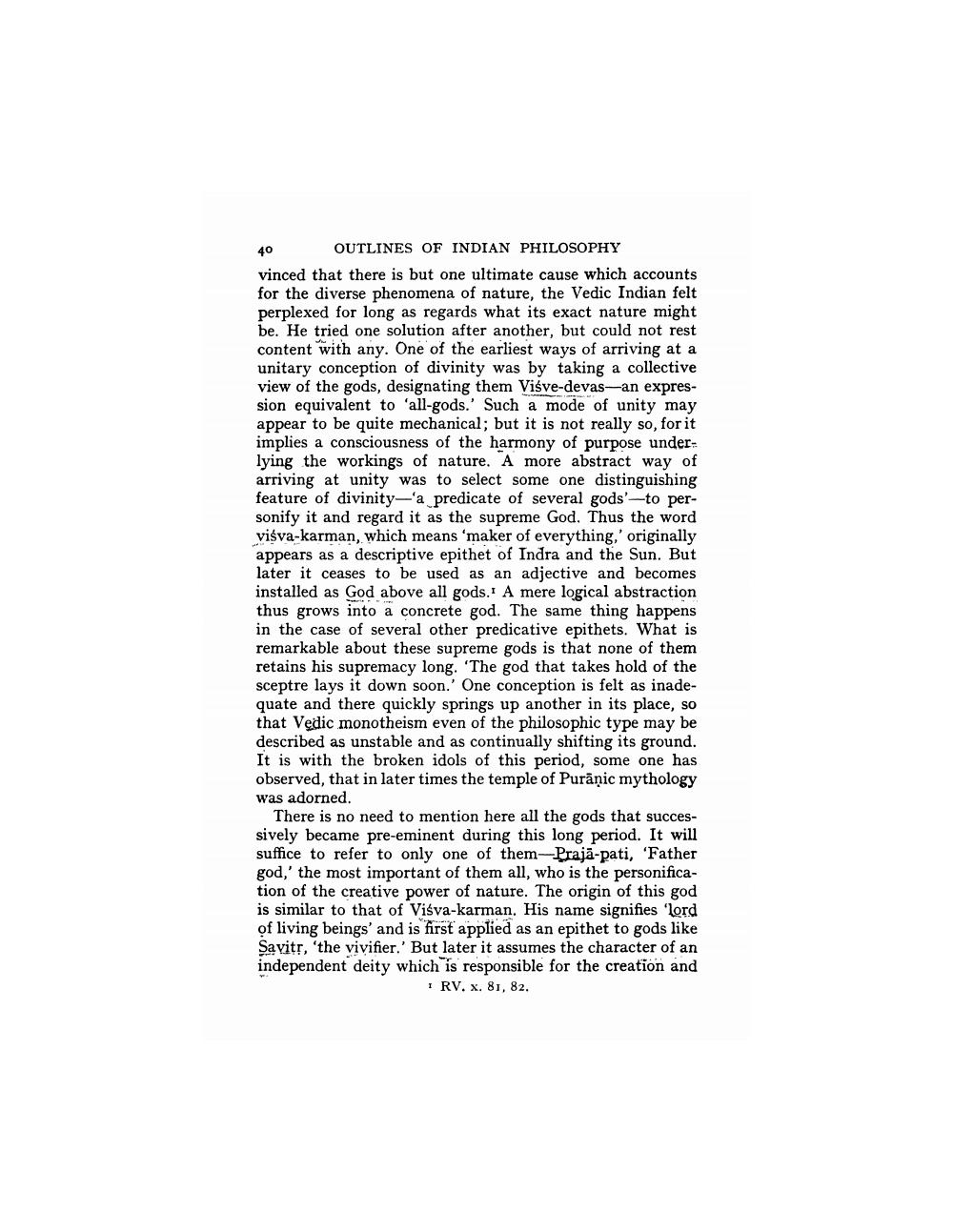________________
40 OUTLINES OF INDIAN PHILOSOPHY vinced that there is but one ultimate cause which accounts for the diverse phenomena of nature, the Vedic Indian felt perplexed for long as regards what its exact nature might be. He tried one solution after another, but could not rest content with any. One of the earliest ways of arriving at a unitary conception of divinity was by taking a collective view of the gods, designating them Visve-devas-an expression equivalent to 'all-gods. Such a mode of unity may appear to be quite mechanical; but it is not really so, for it implies a consciousness of the harmony of purpose under: lying the workings of nature. A more abstract way of arriving at unity was to select some one distinguishing feature of divinity-'a predicate of several gods'-to personify it and regard it as the supreme God. Thus the word visva-karman, which means 'maker of everything,' originally appears as a descriptive epithet of Indra and the Sun. But later it ceases to be used as an adjective and becomes installed as God above all gods. A mere logical abstraction thus grows into a concrete god. The same thing happens in the case of several other predicative epithets. What is remarkable about these supreme gods is that none of them retains his supremacy long. 'The god that takes hold of the sceptre lays it down soon.' One conception is felt as inadequate and there quickly springs up another in its place, so that Vedic monotheism even of the philosophic type may be described as unstable and as continually shifting its ground. It is with the broken idols of this period, some one has observed, that in later times the temple of Purāņic mythology was adorned.
There is no need to mention here all the gods that successively became pre-eminent during this long period. It will suffice to refer to only one of them-Prajā-pati, 'Father god,' the most important of them all, who is the personification of the creative power of nature. The origin of this god is similar to that of Visva-karman. His name signifies 'lord of living beings' and is first applied as an epithet to gods like Savitr, 'the vivifier.' But later it assumes the character of an independent deity which is responsible for the creation and
1 RV. x. 81, 82,




